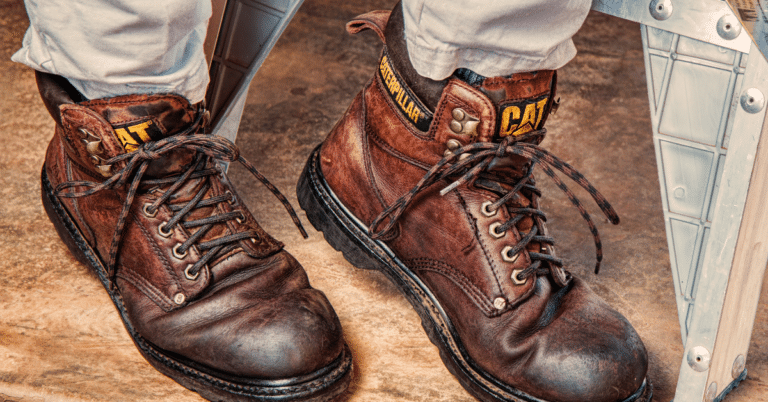Last Updated on March 26, 2025 by Jeffrey Calderon

Best Air Compressor: Top Choices for Home and Work
Picking the optimal air compressor can be a challenging endeavor, given the multitude of choices available. To aid in your search for the best air compressor, this guide will explore types and applications, as well as the advantages of having a reliable tool.
We’ll start by exploring different types of air compressors and their specific applications. Next, we’ll discuss the benefits that come with owning an efficient and reliable tool like a top-notch air compressor. Furthermore, cost considerations play a crucial role in choosing the perfect device for your needs.
Performance specifications such as maximum pressure output, tank size, and noise levels are essential factors when selecting the best air compressor. Finally, we will present our top five picks based on these criteria to ensure you find an ideal match for your requirements.
Table of Contents:
- Types of Air Compressors
- Piston-Type Compressors
- Rotary Screw Compressors
- Portable Air Compressors
- Benefits of Air Compressors
- Cost Considerations
- Performance Specifications
- Top 5 Air Compressors
- FAQs in Relation to Best Air Compressor
- Conclusion
Types of Air Compressors
Air compressors are versatile tools that can be used for various tasks, from inflating tires to powering pneumatic tools. It is imperative to select the appropriate air compressor based on your requirements as a homeowner or contractor, since there are numerous sizes and kinds available. In this section, we will explore the different types of air compressors that are available.
Piston-Type Compressors
Piston-type compressors use a piston-driven motor to create compressed air by forcing it into a storage tank. Piston-type compressors can be categorized into single-stage and two-stage, the latter utilizing an extra cooling step for greater pressure. Single-stage units have one piston that compresses air directly into the tank, while two-stage units utilize an additional cooling step between stages for higher pressure output.
Pros:
- Ideal for heavy-duty applications requiring high pressure
- Larger capacity tanks store more compressed air
- Durable and long-lasting design
Cons:
- Noisy operation due to moving parts within the compressor
- Bulkier size compared to other types
- Maintenance requirements such as oil changes and belt replacements
Rotary Screw Compressors
Rotary screw compressors operate using twin screws instead of pistons. This type offers continuous airflow, making it suitable for applications that require a constant supply of compressed air.
Pros:
- Quiet compressor operation due to fewer moving parts
- Continuous airflow ideal for long-duration tasks
- Lower maintenance requirements compared to piston-type compressors
Cons:
- Potentially higher initial cost than other types of compressors
- Limited pressure output compared to piston-type models
Portable Air Compressors
Portable air compressors, also known as pancake air compressor or hot dog compressors, are compact and lightweight. They’re designed for easy transportation and smaller-scale projects such as inflating tires or powering small pneumatic tools.
Pros:
- Ideal for homeowners and DIY enthusiasts who need a portable solution
- Affordable price range with various options available on the market
This section discusses the main types of air compressors available on the market, including piston-type compressors (single-stage and two-stage), rotary screw compressors, and portable air compressors. Each type has its pros and cons, making it essential to choose the right one based on your needs as a homeowner or contractor.
Benefits of Air Compressors
- Powering Pneumatic Tools: Air compressors can power heavy-duty tools like nail guns, impact wrenches, and paint sprayers, which are often more powerful and durable than electric tools.
- Energy Efficiency: Air compressors are more energy-efficient than individual electric-powered devices because the energy consumption is centralized within the compressor itself.
- Cleaner Work Environment: Pneumatic tools don’t produce exhaust emissions, so using an air compressor helps maintain a cleaner work environment with fewer pollutants in the air.
- Variety of Applications: Compressed air can be used for inflating tires or sports equipment, cleaning surfaces with pressurized blasts, operating pressure washers, and even powering certain types of HVAC systems.
- Portability: Many air compressors are designed to be portable, making it easy to transport them between job sites or around your property.
Investing in an air compressor offers numerous benefits for both homeowners and contractors, from increased power and efficiency with pneumatic tools to a cleaner work environment. The right air compressor can be a great addition to any toolbox, providing enhanced power and efficiency with pneumatic tools as well as a cleaner work area.
Cost Considerations
Buying an air compressor? Don’t forget to factor in the costs.
Initial Purchase Price
Contemplate the expenditure of an air compressor, which can vary in price based on model, size, capability and features.
- For small projects: Consider portable electric air compressors.
- For contractors: Invest in larger stationary models with greater power outputs.
Ongoing Maintenance Costs
Maintenance is important to consider when evaluating the overall cost of owning an air compressor.
- Oil-lubricated compressors: Require regular oil changes and filter replacements.
- Oil-free compressors: Have fewer maintenance requirements but some parts may wear out faster.
Tips To Reduce Maintenance Costs:
- Purchase high-quality equipment from reputable manufacturers.
- Follow the manufacturer’s recommended maintenance schedule and guidelines.
- Keep your compressor clean and free of dust, debris, or other contaminants.
Energy Consumption Expenses
The energy efficiency of an air compressor can impact its overall cost.
- Horsepower (HP): Higher HP means greater power output but also increased energy consumption.
- Duty cycle: Compressors with longer duty cycles are generally more efficient.
Considering these cost factors will help you select an air compressor that provides optimal value.
Performance Specifications
Choosing the right air compressor means considering power output, tank size, and noise level.
Power Output
Measure power output in horsepower (HP) to determine how much compressed air the unit can deliver – 1-2 HP for small tasks, 5-10 HP for high-pressure applications.
Tank Size
Choose a container capacity dependent on frequency of utilization – tiny tanks (1-6 gallons) for sporadic use, mid-sized containers (7-20 gallons) for occasional employment, and big tanks (21+ gallons) for laborious applications.
- Small Tanks: Suitable for light-duty tasks such as inflating tires and small DIY projects.
- Medium Tanks: Ideal for moderate use in workshops with intermittent tool usage.
- Large Tanks: Designed for heavy-duty applications requiring extended periods of continuous operation without frequent refills.
Noise Level
Consider noise levels when selecting an air compressor – quieter models operate at around 60 dB or less.
Check out this guide for tips on how to make your air compressor quieter.
5. Top 5 Air Compressors
For those looking for the best air compressors, we’ve narrowed down our top five picks to make choosing easier.
- DeWALT DWFP55126: This 6-gallon, 165 PSI air compressor is perfect for homeowners and contractors alike.
- Pros: Quiet operation (75 dBA), efficient high-pressure technology, oil-free pump requires less maintenance.
- Cons: Slightly pricier than other models in its class.
- Makita MAC2400 Big Bore: With a powerful 2.5 HP motor and large tank capacity (4.2 gallons), this model delivers consistent performance even under heavy use.
- Pros: Durable cast iron construction, low noise level (79 dB), oil-lubricated pump ensures cooler running temperatures.
- Cons: Heavier than some competitors at around 77 lbs., making portability more challenging.
- Porter-Cable C2002: This 6-gallon, 150 PSI air compressor is a budget-friendly option that doesn’t skimp on performance.
- Pros: Lightweight (30 lbs.), oil-free pump for low maintenance, quick recovery time.
- Cons: Slightly louder operation at around 82 dBA.
- California Air Tools CAT-8010: Known for its ultra-quiet operation (60 dBA), this model boasts an impressive 8-gallon tank and a powerful 1 HP motor.
- Pros: Oil-free pump requires less maintenance, easy to transport with built-in wheels.
- Cons: Lower power output compared to other models in the same price range.
- BOSTITCH BTFP02012: This 6-gallon air compressor is perfect for small projects or occasional use.
- Pros: Affordable price point, lightweight (29 lbs.), oil-free pump reduces maintenance needs.
- Cons: Louder than some competitors at around 78.5 dBA, may not be suitable for heavy-duty applications.
FAQs in Relation to Best Air Compressor
Which air compressor is best?
Choosing the best air compressor depends on your specific needs and usage, but the DEWALT DWFP55126 is a popular choice for homeowners due to its performance and reliability, while contractors prefer the durable and powerful Makita MAC2400.
What is the most reliable compressor?
High-quality components and solid construction are key to a reliable air compressor, and brands like DEWALT, Makita, and Campbell Hausfeld are known for producing durable, long-lasting compressors that can withstand regular use.
What determines a good air compressor?
A good air compressor should have adequate CFM output, appropriate PSI rating, low noise levels, efficient cooling systems, easy maintenance access, and portability features like wheels or handles if needed, with quality build materials and components to ensure longevity of use.
What is the best compressor for DIY?
The PORTER-CABLE C2002 Oil-Free UMC Pancake Compressor provides sufficient power while being lightweight and portable, making it an excellent choice for home improvement tasks.
Conclusion
Looking for the best air compressor? Consider factors like type, cost, and performance before making your purchase.
Our top five air compressors offer superior performance and durability at an affordable price point, making them perfect for DIY projects or heavy-duty construction work. See below and make a solid choice.
- PORTER-CABLE C2002 Oil-Free UMC Pancake Compressor: This portable model is perfect for small jobs and comes with a 13-piece accessory kit.
- DEWALT DXCM271.COM Portable Air Compressor: With a 27-gallon air tank and 200 PSI maximum pressure, this model is great for larger jobs.
- Campbell Hausfeld DC080500 Portable Air Compressor: This oil-free compressor is easy to transport and has a 1.3 HP motor for efficient performance.
- Industrial Air IL1682066.MN 20-Gallon Belt Driven Air Compressor: This stationary model has a cast-iron, twin-cylinder pump for long-lasting durability.
- Ingersoll Rand SS3F2-GM Garage Mate Air Compressor: This oil-lubricated compressor has a 30-gallon tank and is perfect for heavy-duty use.
Choose the air compressor that best fits your needs and get to work!






